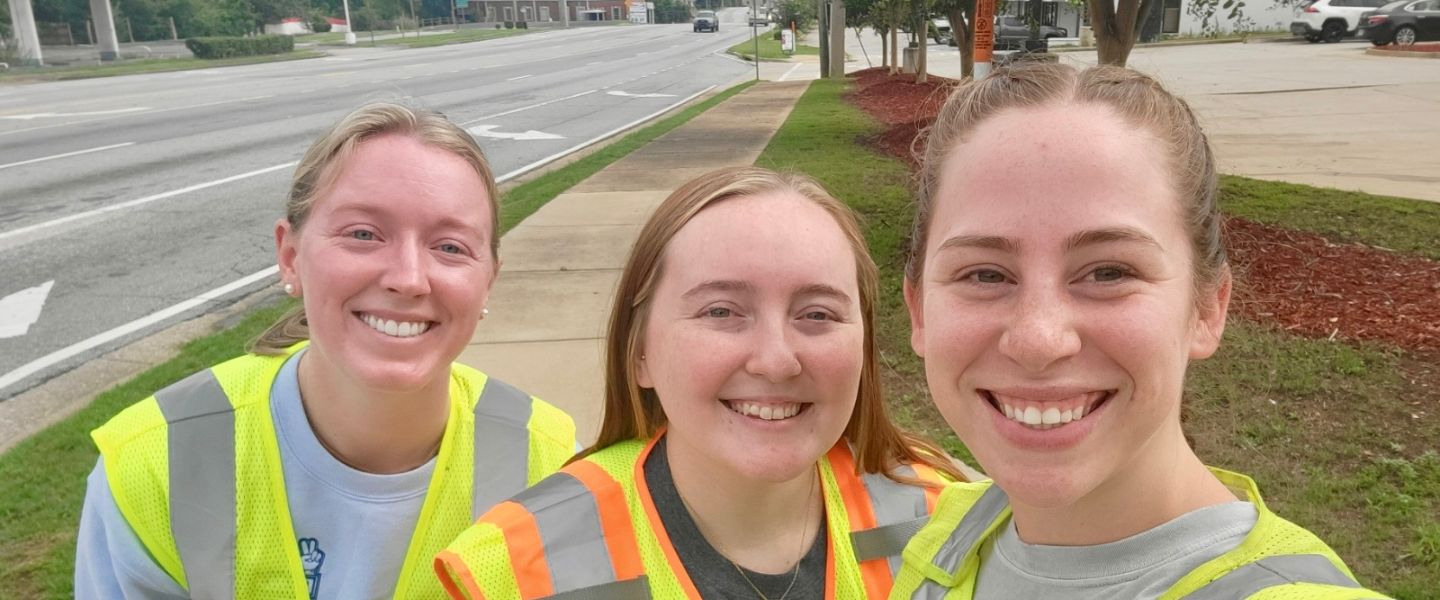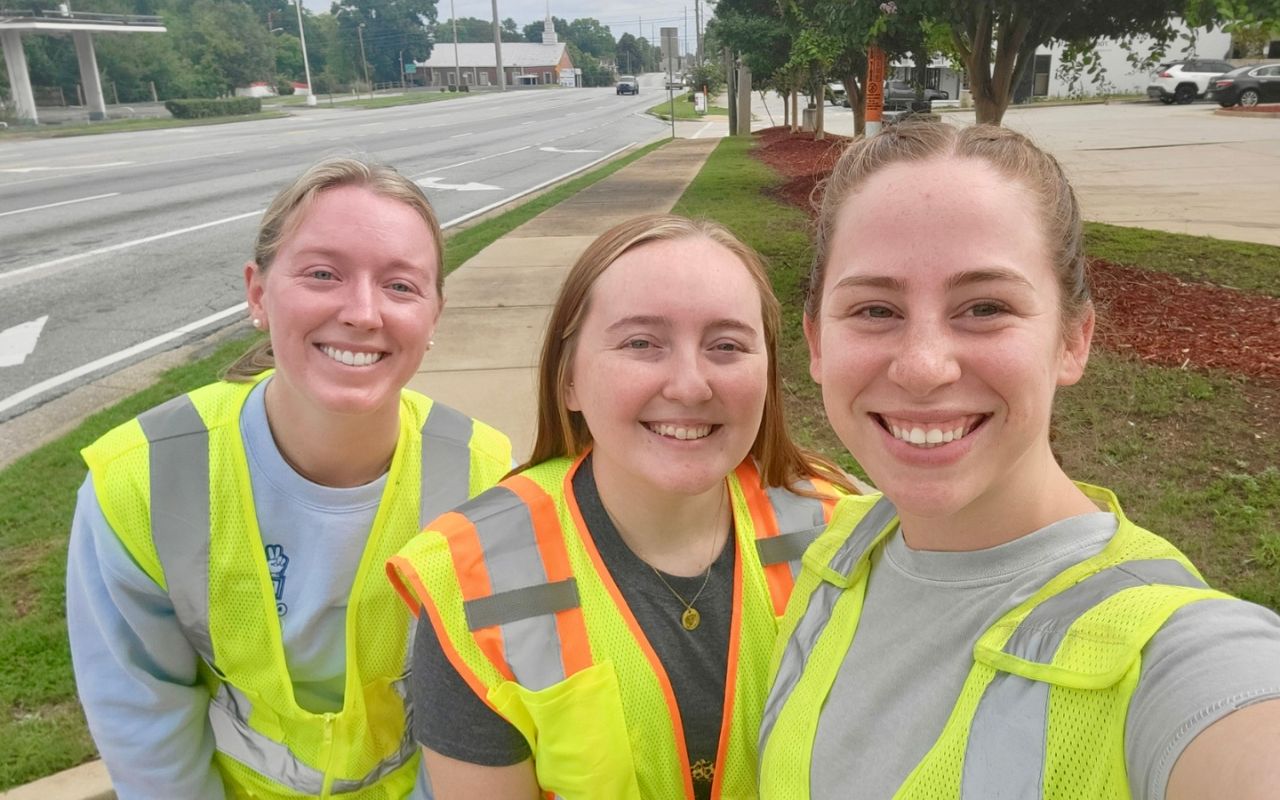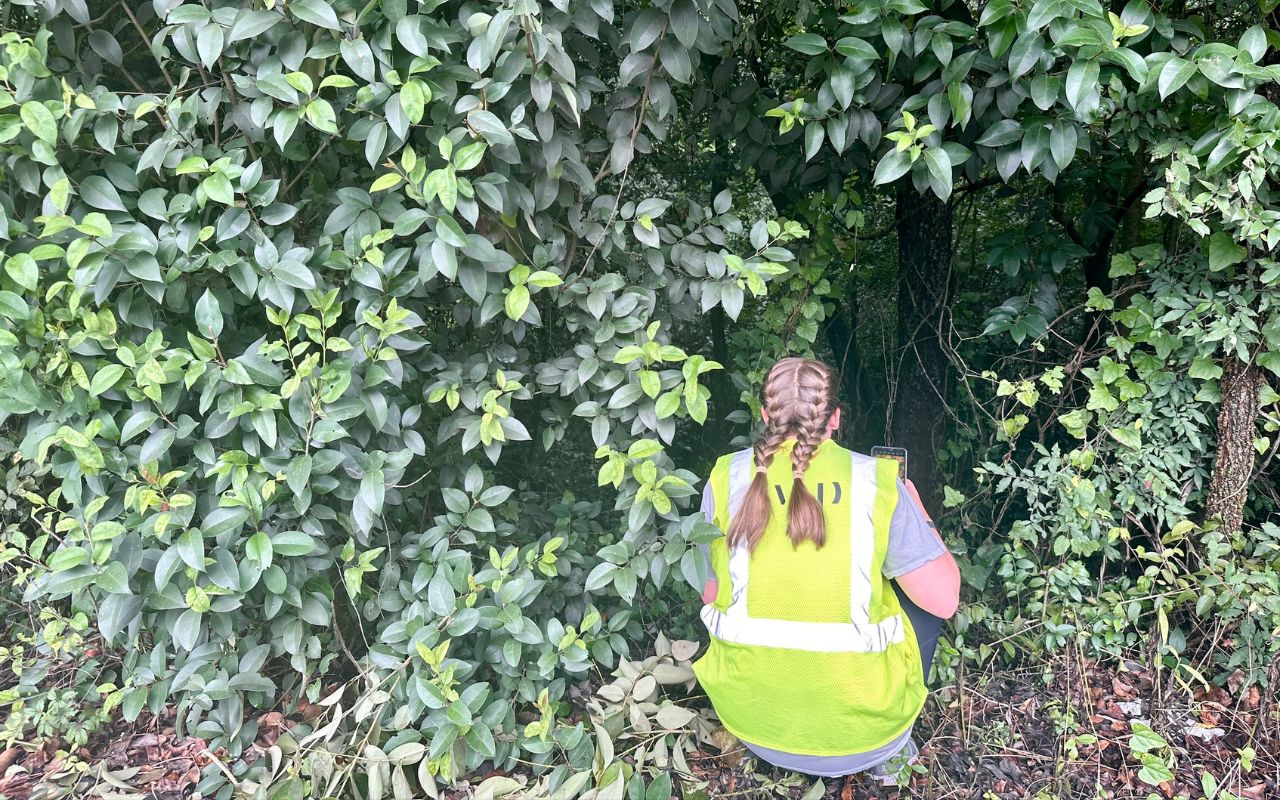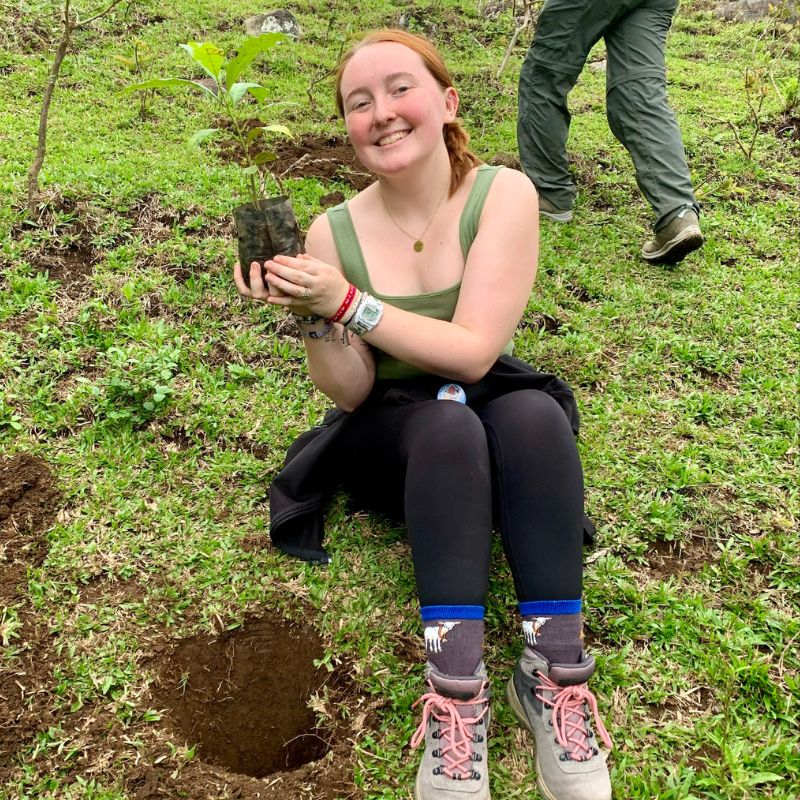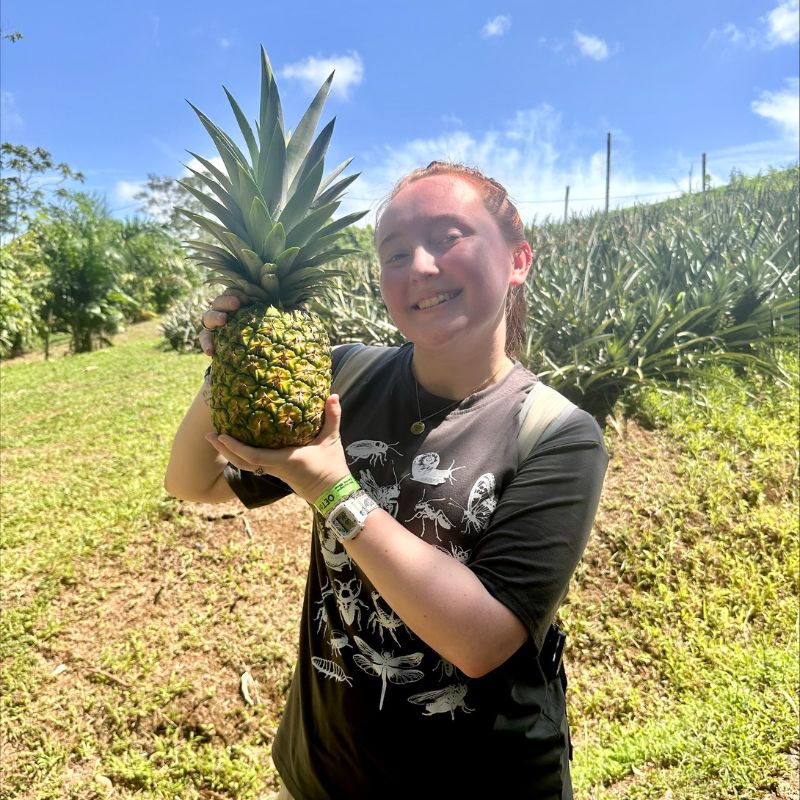How York’s Belmont education is serving Georgia’s metropolitan ecosystems
Senior Lauren York has always had a passion for nature. Raised in the small town of Rome, Georgia, she is no stranger to life on farms, being around animals and observing how the outdoors provide. As an environmental science major today, she is actively working to give back to nature in return.
Initially a biology major at Belmont, she found her true calling in environmental science during her sophomore year. The influence of passionate professors, particularly Dr. Matthew Heard and Dr. Darlene Panvini, opened her eyes to the vast possibilities within the field.
“I had always been passionate about conservation, and hearing what Dr. Heard was doing with his environmental science degree and what he taught in his classes really inspired me to switch,” said York.
York’s degree switch fell right in line with what Belmont’s College of Sciences & Mathematics preaches to young or incoming students — flexibility exists within the college. Practice and experience a variety of sciences, then pursue what captures the attention.
Working for WSP
This past summer, York had the opportunity to intern with WSP in Atlanta, a global engineering firm that develops sustainable infrastructure and energy solutions. Serving as an environmental planning intern, York lent her conservation expertise to WSP’s ecology and National Environmental Policy Act team.
Primarily, York evaluated natural areas that will potentially be developed to scope out the environment and plants and animals in the area, then determine what the ecological impact would be in said areas.
“Atlanta is a lot like Nashville in that there is always construction, and often times we don’t think about the impact that development has on nature,” she explained. “There are so many species that have been pushed to smaller areas around Atlanta that are further from their homes, so we are really taking a close look at this issue.”
York also worked on “The Stitch,” a WSP initiative attempting to connect Atlanta’s green spaces by building bridges connected to interstates, highways and smaller roads.
Upon returning to Nashville for her senior year at Belmont, York will continue to work for WSP’s Atlanta office remotely.
York’s Study Abroad and Research Opportunities
The same summer, York studied abroad in Costa Rica to observe the country’s leading sustainability practices. The trip marked the first time she ever traveled with a passport or flew on a plane.
“Not only was it so much fun, but I got to learn about something that I love,” she said. “We are nowhere near the level of diversity that Costa Rica is, but the way they love and cherish their land is so amazing — it was beyond perfect. I would love to get near that level here in the States.”
While in Costa Rica, York completed a research project tasked to every student, a project she feels will better prepare her to tackle her upcoming senior research at Belmont. She and her project partner are currently narrowing down their research topic.
“I feel so comfortable preparing for that process having already completed research in Costa Rica and BURS previously,” said York. “Creating a scientific poster can be so overwhelming to look at, to present or even to read. But having research experience and presenting experience at BURS has helped me become much more comfortable with the process.”
York’s Belmont Undergraduate Research Symposium (BURS) presentation her junior year looked at the composition rates between two plants — one being a species native to Tennessee and the other being non-native. BURS was been rebranded to SPARK ahead of the 2024-25 academic year.
Why Environmental Education Matters
“People don’t realize how much everything you do impacts the earth until they go learn about it,” said York.
While York acknowledges that the damage done to the earth is irreparable, we can still look forward to what we can do better. But for this to work, people must be educated on how to care for the environment and how much damage seemingly small acts can cause to the plants she has studied and the animals she grew up with.
“Learning about environmental science teaches you so much about the world you live in and gives you an appreciation for the systems and ecosystems that you would never think about but still impact you,” she continued. “It changes how you treat the planet and makes you think about what will make it better in the long run.”
Belmont’s Role in York’s Journey
Coming from a small town that differs greatly from Nashville, Belmont served as a perfect middle ground for York. The closely-knit community on campus bridged Rome, Georgia to the lights and sounds of downtown Nashville.
“Belmont is passionate about everyone being themselves and being comfortable in their environment,” she said. “It has made me feel more comfortable in my own skin, encouraging me to go back home and be confident in myself anywhere. It really is a big family on campus, no matter who you are, what you believe or how you think.”
York also had nothing but the utmost amount of praise for Panvini who has become more than just an environmental science professor to her, but a mentor.
“Dr. Panvini is the best person I’ve ever met in my entire life, and I hope she knows how much she influences her students,” she said. “The small class sizes put me in a position to meet so many amazing people and has created an incredible support system for me which is so important in college. It’s crucial to know the people around you influence your success, and I owe so much to the friends I’ve made at Belmont and professors like Dr. Panvini.”
Learn More
Learn more about environmental science at Belmont.

